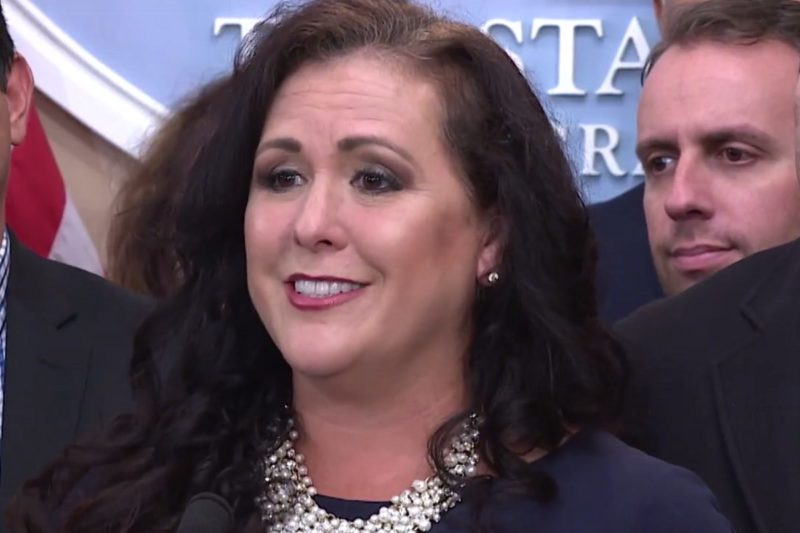California Bill Says Church Employer Can’t Fire Workers if They Use Birth Control (Updated)
"While Trump and his cronies seek to grant broad licenses to discriminate, California is showing that we stand for reproductive freedom and economic justice for all."

UPDATE, October 16, 11:39 a.m.: Gov. Jerry Brown (D) on Sunday vetoed the bill, arguing it was unnecessary because the “California Fair Employment and Housing Act has long banned such adverse actions, except for religious institutions.”
For some California workers, abiding by a religious code of conduct can spell the difference between gainful employment and a pink slip. Many California churches, religious groups, and anti-choice organizations require workers to sign statements of faith or codes of conduct as a condition of employment, as the California Family Council, a policy arm of the Family Research Council, noted.
But legislation heading to Gov. Jerry Brown’s (D) desk would render these types of agreements invalid, and bar employers from retaliating against a worker for reproductive health decisions. The bill cleared the Democratic-led state senate and assembly last week in floor votes.
Assemblywoman Lorena Gonzalez Fletcher (D-San Diego), the bill’s sponsor, said the legislation stops religious employers from infringing on a worker’s right to make personal decisions about birth control and pregnancy.
“Women in this country have been fired for getting pregnant while unmarried, for using in-vitro fertilization and for other personal reasons related to their own reproductive health,” Gonzalez Fletcher said in a statement. “No woman should ever lose a job for exercising her right to decide when, how, or whether to have a family.”
AB 569 protects workers from discrimination or retaliation for using any medication, medical service, or device related to reproductive health. Sponsored by NARAL Pro-Choice California and California Latinas for Reproductive Justice, the bill comes a few months after President Trump moved to expand religious imposition by signing an executive order, flanked by the Little Sisters of the Poor, who sued over the Affordable Care Act’s birth control benefit.
“While Trump and his cronies seek to grant broad licenses to discriminate, California is showing that we stand for reproductive freedom and economic justice for all,” Amy Everitt, state director of NARAL Pro-Choice California, said in a statement.
Gonzalez Fletcher said religious employers have discriminated against some workers’ health-care decisions in California. In one case, San Diego Christian College required a financial aid specialist to sign paperwork saying she wouldn’t have premarital sex. The college then fired her when she became pregnant, taking that as evidence that she had violated the code of conduct, as KTLA reported. In another case, the Archbishop of San Francisco tried unsuccessfully to require teachers to sign a code of conduct saying they wouldn’t use birth control or attempt artificial insemination.
Sixteen faith-based groups signed a letter supporting AB 569, but opponents argue the bill’s employment protections infringe on so-called religious freedom.
“Every organization that promotes a pro-life message must be able to require its employees to practice what they preach,” said California Family Council President Jonathan Keller. “It is unconscionable for any politician to attempt to abridge this sacrosanct religious liberty by inserting themselves into the employee-employer relationship.”
A similar measure passed in St. Louis, Missouri, is now facing a court challenge from religious groups, as the St. Louis Post-Dispatch reported.
An analysis by the state Senate Judiciary Committee indicates the California legislation is constitutional under the U.S. Supreme Court interpretation of the Free Exercise Clause in a key 1990 decision. In that case, Employment Division v. Smith, the high court held that a neutral law is constitutional as long as it doesn’t single out a religious behavior and is not motivated by the desire to interfere with a religion.
